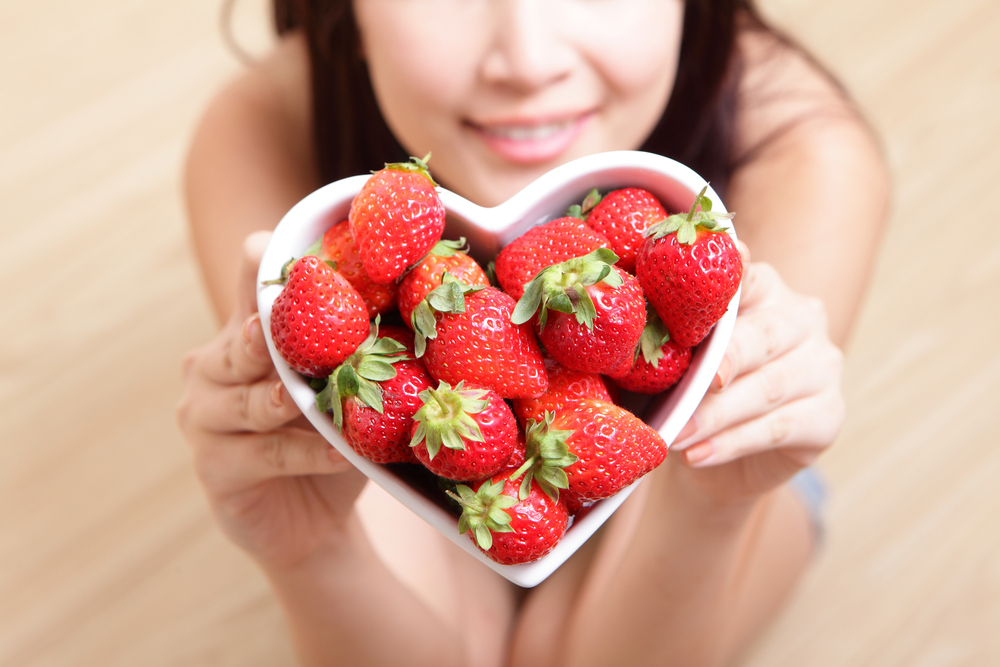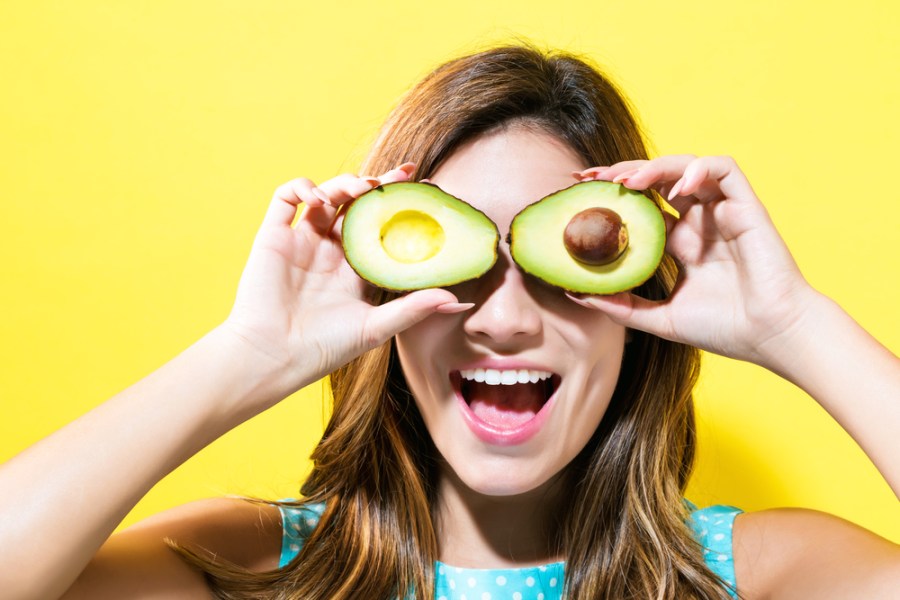Feel full of the joys of spring with foods that support your happy hormones!
With the days now longer and lighter it’s easier to feel brighter. And with April being stress awareness month, we’re turning to foods that can boost your mood and make you feel even better. After all, the link between the gut and brain is now very well established, and what you eat really can influence how you feel, working to either calm or exacerbate stress.
One way to boost feelings of positivity and happiness is to eat in a way that increases your levels of dopamine, dubbed the ‘happy hormone’. Latest research suggests that producing too little dopamine can make you prone to eat too much and feel apathetic, fatigued, lethargic, forgetful, anxious and depressed. Yet there is a simple way to increase dopamine levels naturally… through the types of food you eat.
‘Dopamine is a neurotransmitter – a chemical messenger that carries signals between nerve cells (neurons) in your brain,’ says behaviour change psychologist Dr Aria Campbell-Danesh (dr-aria.com). ‘It’s made in two tiny areas of the brain: the substantia nigra, which is to do with movement and speech, and the ventral tegmental area, which is part of the reward system. Dopamine is critically important, because it plays roles in several behaviours including healthy mood, how you learn, memory and motor function. It’s also associated with addiction and motivation.’
 Dopamine isn’t only released because of yummy foods either – it can be triggered by anything pleasant, such as happy music or a pleasant touch, such as a massage. ‘Whenever dopamine is released it stimulates the reward centre of your brain, creating a pleasurable sensation,’ says Dr Aria.
Dopamine isn’t only released because of yummy foods either – it can be triggered by anything pleasant, such as happy music or a pleasant touch, such as a massage. ‘Whenever dopamine is released it stimulates the reward centre of your brain, creating a pleasurable sensation,’ says Dr Aria.
In one US study at Brookhaven National Laboratory, it was shown that people who were obese had fewer receptors for dopamine, so they ate more to try and stimulate those pleasure circuits. In addition, some people may be more predisposed to having lower dopamine levels, either through biological or psychological factors.
Back to bacteria
The health of your gut is also a factor. ‘The latest research shows that bacteria that live in your gut are also involved in the production of dopamine. The network of neurons there is identical in structure to those in your brain. Both produce similar neurotransmitters and hormones. So, eating probiotic foods such as kefir, live yogurt, miso, sauerkraut and fibrous vegetables will help maintain the healthy bacteria in your digestive tract needed to boost dopamine levels. In many cases, low dopamine levels are simply the result of poor nutrition’ says Dr Aria. ‘To make dopamine, you need to eat foods that contain the amino acids tyrosine and phenylalanine (which is converted to tyrosine).
Many protein foods, such as meat and fish, contain these amino acids. Some of the best sources of tyrosine include salmon, mackerel, turkey, chicken, beef, pork, dried seaweed, peanut flour, soybeans and bananas. Turkey and chicken also contain tryptophan, which is needed to make the feelgood chemical, serotonin,’ she says.
‘Different cheeses have different amounts of tyrosine. Parmesan has the highest concentration, followed by Gruyere and Romano. Fruits containing tyrosine include: apples, bananas, blueberries, grapes, oranges, papaya, strawberries, prunes and watermelon. Apples, bananas and berries also contain the antioxidant quercetin, which helps prevent dopamine loss. Meat, fish, eggs, beans and nuts are good sources of phenylalanine, too, as is dark chocolate.’
 Many vegetables also aid with the production of dopamine. ‘Plant foods are high in antioxidants that inhibit the action of something called monoamine oxidase (MAO) – an enzyme that breaks down feelgood serotonin and dopamine. Eating fruit and vegetables helps to regulate MAO activity and raises levels of these neurotransmitters.
Many vegetables also aid with the production of dopamine. ‘Plant foods are high in antioxidants that inhibit the action of something called monoamine oxidase (MAO) – an enzyme that breaks down feelgood serotonin and dopamine. Eating fruit and vegetables helps to regulate MAO activity and raises levels of these neurotransmitters.
Nuts and seeds also contain nutrients that are beneficial for healthy dopamine production. Brazil nuts, for example, are rich in selenium; almonds, walnuts, pecans and hazelnuts are rich in tyrosine; seeds contain B6, folate and zinc.’
Load up on these happy foods…
- Milk, cheese and live, probiotic yogurt.
- Unprocessed meats such as beef, chicken and turkey.
- Wild-caught fish such as salmon and mackerel as well as shellfish (there are fewer toxins and higher levels of omega-3).
- Eggs.
- Beans, pulses and lentils.
- Vegetables, especially green leafy ones.
- Fruits, in particular bananas.
- Nuts such as almonds and walnuts.
- Seeds.
- Dark chocolate (the sort with 80 per cent or more cacao).
- Chickpeas.







